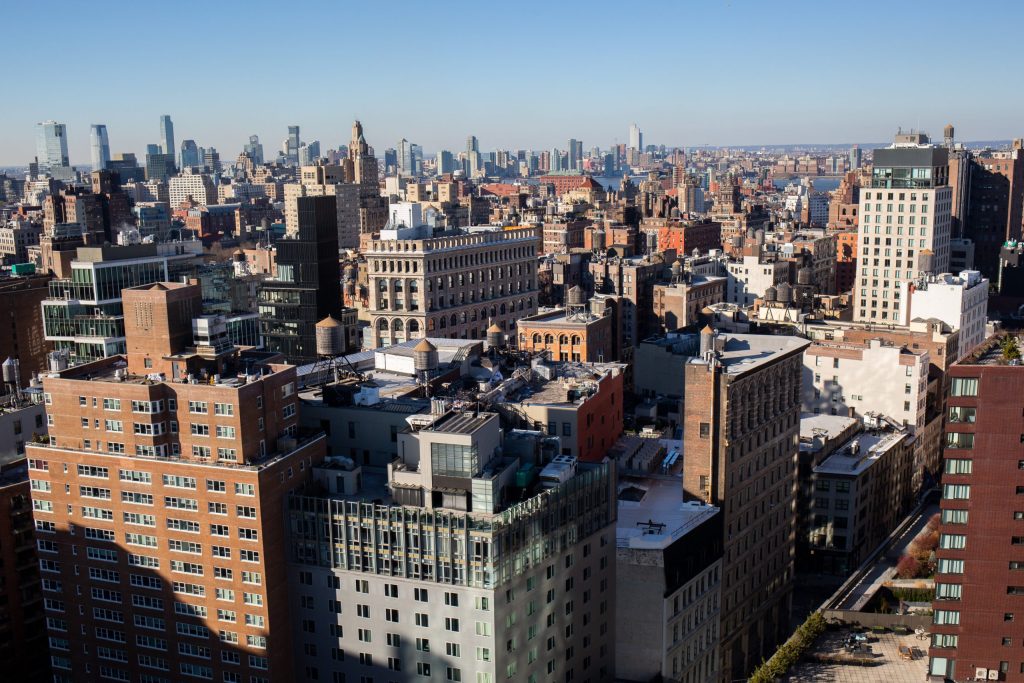The Citizens Budget Commission has launched a last-ditch effort to derail a four-year extension of a commercial property tax break that costs the city more than $500 million a year.
In a letter to Gov. Kathy Hochul this week, the business-backed fiscal watchdog called on her to use an amendment procedure to extend the Industrial & Commercial Abatement Program for one year rather than the four years provided in a bill that passed in the last days of the legislative session in June — and renewed the program well before its expiration next year.
The letter was first reported by New York Focus.
However, the full extension was proposed by the administration of Mayor Eric Adams and was strongly supported by the Real Estate Board of New York, whose members are major contributors to Hochul’s campaigns.
The tax break, which in one form or another dates back to the late 1980s when scores of businesses were leaving the city, provides a full 13-year property tax exemption on improvements made to a property with another 13 years during which the abatement gradually phases out. It does not apply to parts of Manhattan.
ICAP cost the city $506 million in revenue over the last fiscal year. (Ending the program would not affect projects that have already received the tax break.)
The CBC, which is generally skeptical of specific incentives like this one, contends the program’s benefits are too generous and its geographic restrictions too limited, also raising doubts about whether the tax relief is needed to make projects economically feasible.
“The rushed, under-the-radar ICAP extension continues the State’s poor practice of preserving economic development tax incentive programs without proof they work — or in some cases, despite evidence they are ineffective,” CBC President Andrew Rein wrote in a letter to the governor. “This extension comes on the heels of similarly rushed renewals in 2015, 2017, and 2020.”
Those with knowledge of the effort said the administration sought the extension because it argued the tax break promotes crucial economic activity and feared letting it lapse in March 2025 before the legislature took action to tackle the issue in the 2025 session, which ends in June.
In a memo of support, the administration also contended that the tax break is needed to make economically viable a new generation of energy-efficient power plants used at times of peak demand.
“Absent the availability of this abatement, the cost of capacity would increase and be passed on to consumers through higher electric rates,” the memo said.
The Real Estate Board argued the incentive is crucial for continued investment in commercial buildings whose attractiveness has waned in the post-pandemic economy.
“REBNY joined the City of New York in advocating for the renewal of the Industrial and Commercial Abatement Program (ICAP),” the organization told THE CITY in a statement. “Encouraging investment in commercial buildings is critical to ensuring that New York continues to attract high-paying employers and the daytime foot traffic that is essential for vibrant retail businesses in our commercial business districts.”
A chapter amendment would mean a long-term extension would not be approved until a study of the effectiveness of the tax break would be completed by the city Independent Budget Office. Mandated by the City Council, the IBO had expected to issue its findings in time for consideration before the program expired next March.
At the same time, City Hall signaled it is open to changes to the incentive.
“Reforming ICAP continues to be a key focus for this administration, and we are committed to working with our partners in the State to address equitable reform,” the Department of Finance said in a statement to THE CITY.
The bill has not yet been sent to the governor. Once she receives it, she has 10 days to sign it, veto it, or return it with the chapter amendment that the legislature would have to approve. The final deadline for action is the end of the year.

